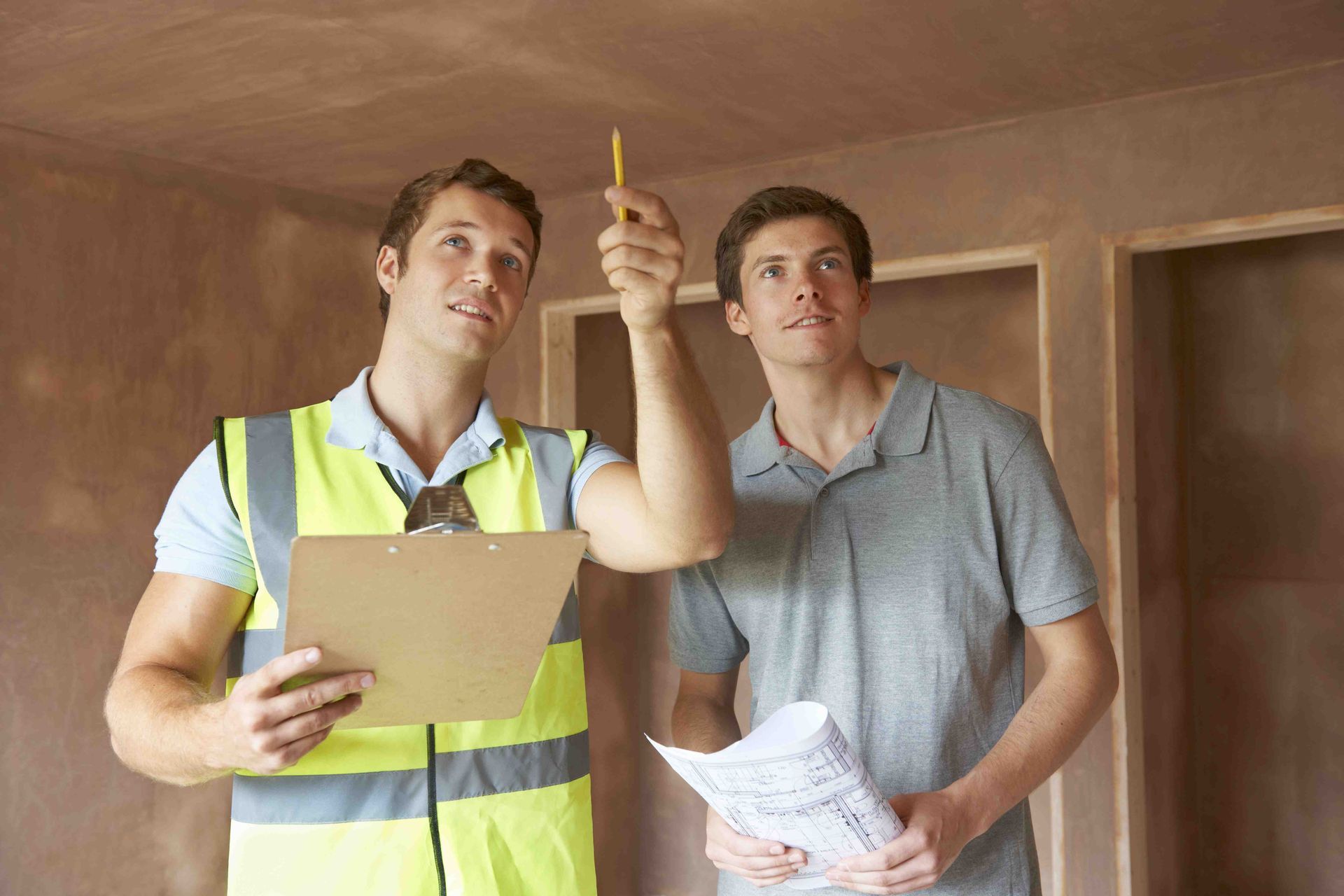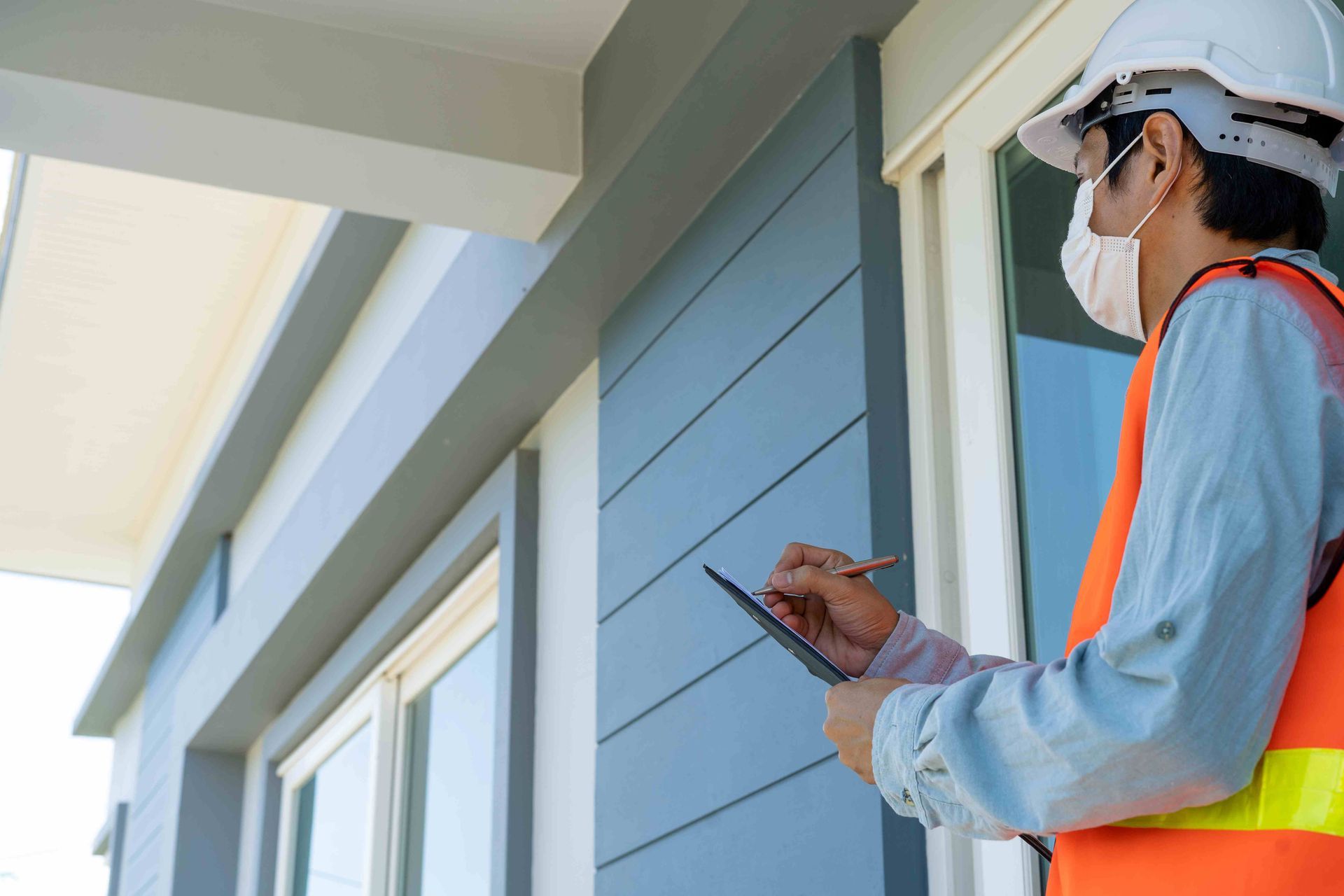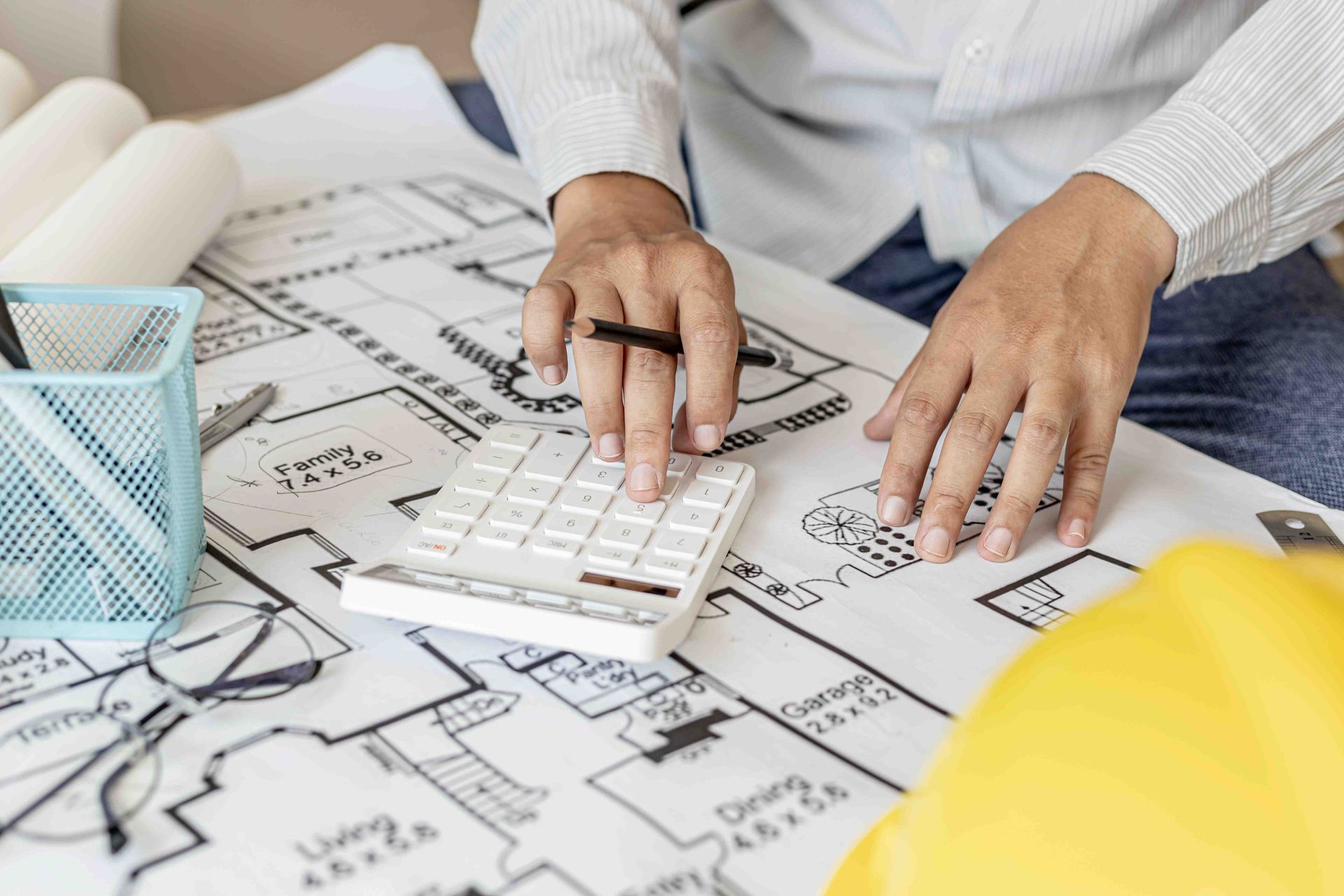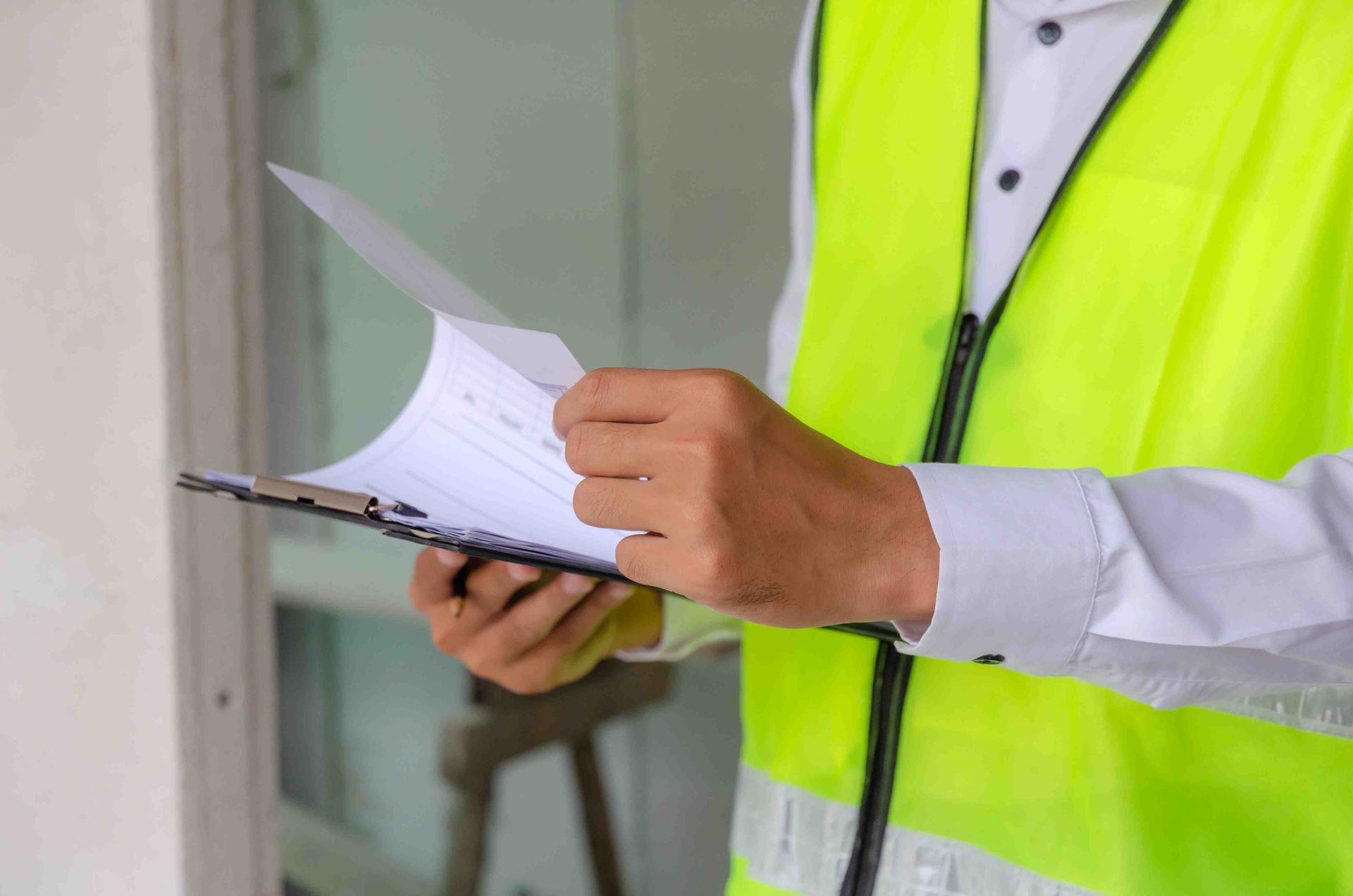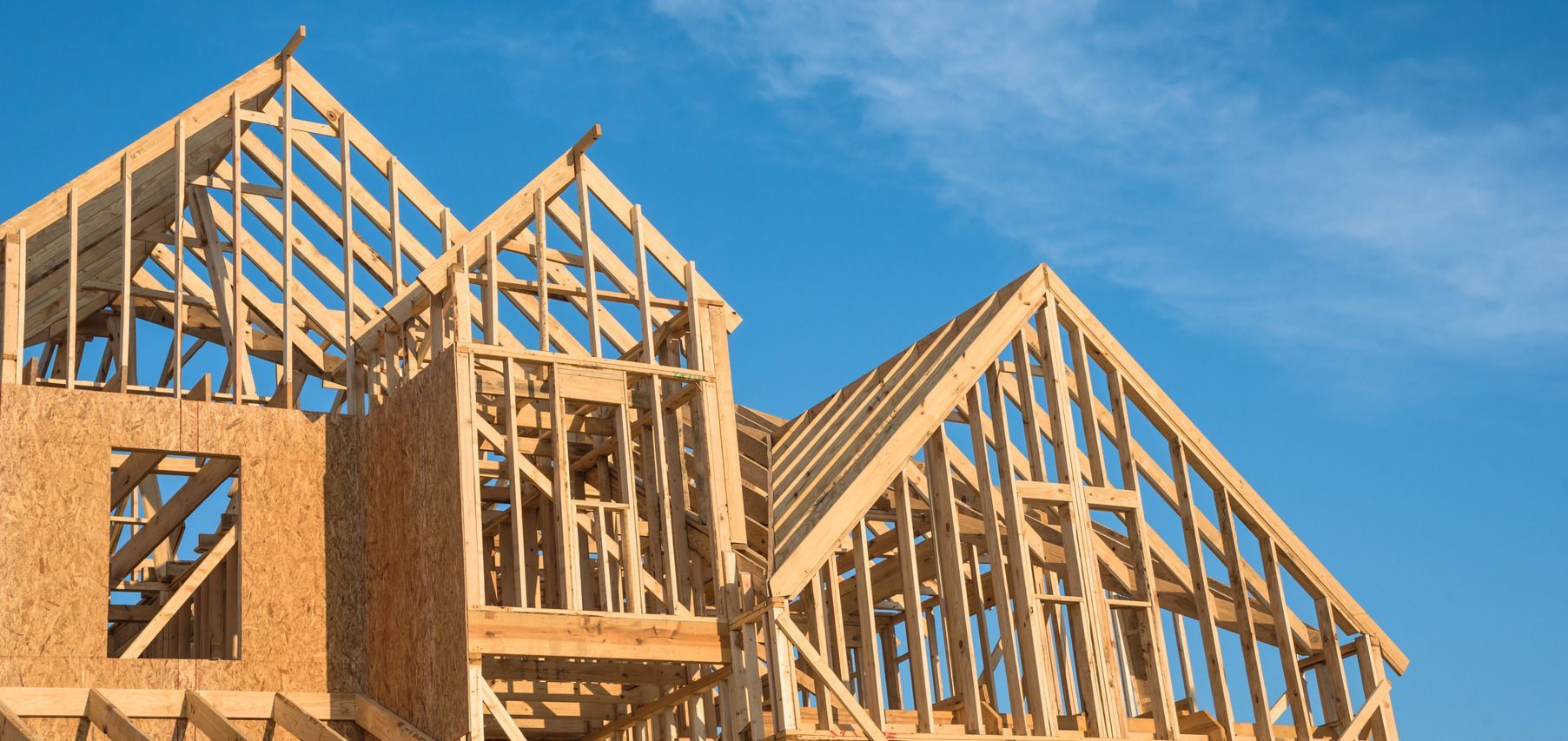Hablamos Español
Everything You Need To Know About HVAC Home Inspections
When buying or selling a house, the HVAC (Heating, Ventilation, and Air Conditioning) system often goes unnoticed. It's essential to inspect the HVAC system to guarantee that it's working well, providing comfort, efficiency, and safety for those living in the house. In this guide, we'll delve into why HVAC home inspections are essential, what happens during the inspection process, everyday issues that may crop up, and why they are significant for homeowners and potential buyers.
Understanding HVAC Home Inspections
A professional HVAC home inspection assesses a property's heating and cooling systems, ventilation setup, and indoor air quality. The main objective is to evaluate the HVAC system's condition, performance, and efficiency while pinpointing any problems or potential issues requiring attention. Here's an overview of how a standard HVAC home inspection is carried out:
1. Evaluation of Heating and Cooling Equipment
During the inspection, an HVAC technician will examine the state and functionality of heating and cooling equipment such as furnaces, heat pumps, air conditioners, and ductless mini-split systems. They'll look for indications of wear and tear corrosion issues, leaks, or malfunctions to ensure that all equipment is operating correctly.
2. Check of Ductwork and Ventilation
The inspector will review the ductwork, vents, and airflow distribution system to ensure that air is circulating correctly throughout the house. They will inspect for blockages, leaks, or insufficient insulation that could impact airflow and air quality. Proper ventilation is crucial for eliminating air, managing humidity levels, and preventing moisture-related problems like mold and mildew growth.
3. Assessment of Indoor Air Quality
The quality of air is an aspect of HVAC home inspections since poor air quality can negatively affect health and overall comfort. The technician will evaluate the efficiency of air filtration systems, humidity controls, and ventilation methods to ensure that indoor air meets standards. They might suggest solutions such as air purifiers, dehumidifiers, or upgrades to ventilation systems to enhance air quality and comfort.
Why HVAC Home Inspections Are Important
1. Ensuring Comfort and Safety
A functioning HVAC system is essential for maintaining indoor temperatures and creating a safe environment for living in good health. A thorough inspection can reveal issues like heating or cooling equipment, insufficient ventilation, or problems with air quality that could compromise comfort and safety.
2. Discovering Ways to Boost Energy Efficiency
When conducting an HVAC inspection, you may uncover opportunities to enhance the energy efficiency of your heating and cooling system at home. This could result in utility bills and a positive impact on the environment. By pinpointing inefficiencies, air leaks, or outdated equipment, homeowners can choose upgrades or maintenance that can improve energy efficiency and lower operating expenses.
3. Preventing Repairs and System Failures
Regular HVAC inspections play a role in identifying potential issues before they escalate into costly repairs or system malfunctions. By addressing issues, homeowners can avoid sudden breakdowns, emergency service calls, and expensive repairs that may disrupt comfort levels and incur significant costs.
Common Problems Detected During HVAC Inspections
1. Unclean or Blocked Air Filters
Among the issues uncovered during HVAC inspections are unclean or blocked air filters. These filters hinder airflow, diminish system efficiency, and contribute to air quality. Regular filter replacements are vital for maintaining peak performance and extending the lifespan of HVAC systems.
2. Refrigerant Leakage
Leaks in refrigerant within air conditioning systems can result in reduced cooling capabilities, increased energy consumption, and potential harm to the compressor. During an HVAC inspection, technicians will examine for signs of leaks. Suggest necessary repairs or recharging to ensure proper functioning.
3. Problems with Ducts and Insulation
Suppose leaks in the ductwork or the insulation are insufficient. In that case, it can lead to energy wastage, temperature regulation, and decreased comfort indoors. When an HVAC technician examines the ductwork for leaks, gaps, and insulation deficiencies, they may suggest sealing and insulating solutions to enhance efficiency and performance.
4. Issues with Electrical Wiring
Potential electrical wiring problems that could impact the system's functionality and safety may be discovered during HVAC inspections. Wiring loose connections or outdated electrical components poses fire risks. It can cause system malfunctions. It's crucial to address any concerns to ensure the safe operation of the HVAC system.
5. Uneven Air Flow
Uneven air distribution within a house is an issue that could stem from ductwork issues, improper equipment sizing, or obstructed vents. Inadequate airflow to rooms can lead to discomfort and inconsistent temperatures. HVAC professionals are skilled at pinpointing the causes of air distribution and suggesting remedies like duct repairs, balancing adjustments, or equipment upgrades to enhance comfort and efficiency.
Suggestions for Enhancing HVAC Efficiency
1. Maintain Regular Maintenance Checks
Regular maintenance ensures that HVAC systems operate efficiently without any hitches. Homeowners should arrange inspections and tune-ups by HVAC technicians to detect and resolve any issues before they escalate into significant concerns.
2. Change The Air Filters Daily
Make sure to change the air filters daily to keep your HVAC system running and maintain good indoor air quality. It's an idea for homeowners to check their filters every month and replace them every one to three months or as the manufacturer advises.
3. Seal and Insulate Ductwork
Sealing and insulating your ductwork is essential to enhance airflow, energy efficiency, and overall comfort inside your home. Hiring a professional to inspect and upgrade the ductwork for any leaks or insulation needs can make a difference in performance.
4. Upgrade to Programmable Thermostats
Consider switching to thermostats that allow you to set temperature schedules based on your daily habits and occupancy patterns. These thermostats can help save energy by adjusting temperatures when you're not home or asleep, leading to cost savings and increased comfort.
5. Invest in Regular Maintenance Agreements
Investing in a maintenance agreement with an HVAC service provider is worth considering. These agreements usually include inspections, tune-ups, and priority service for repairs, ensuring that your HVAC system remains efficient and well-maintained throughout the year.
Regular HVAC home inspections are crucial for maintaining comfort, efficiency, and safety.
By spotting concerns, enhancing efficiency, and incorporating energy practices, homeowners can keep their HVAC systems in shape and relish a cozy and healthy indoor atmosphere. Here at Guardian Angel Inspections, we excel in home inspections that cover evaluations of HVAC systems. Get in touch with us now to arrange your HVAC home inspection and guarantee that your home remains comfortable and energy-efficient for the haul.
Share this entry
RECENT POSTS
CONTACT US
We will get back to you as soon as possible.
Please try again later.
REQUEST A QUOTE
REQUEST A QUOTE
We will get back to you as soon as possible.
Please try again later.
OUR OFFICE HOURS
Monday – Friday 8am to 7pm
Saturday Sunday 8am to 5pm
24/7 Online Scheduling 7 days a week.
ABOUT
Guardian Angel Inspections Inc. Is A Family Owned And Operated Home Inspection Company Based Out Of Royal Palm Beach Florida. We Are Licensed And Insured To Perform Numerous Types Of Property Inspections Including: New Construction Inspection (Draw Inspections), Resale Home Inspection, FHA Certification Inspection, Four Point Insurance Inspection And Windstorm Mitigation Inspection.
MENU
SERVICES
CONTACT
Guardian Angel Inspections, Inc.
Phone :
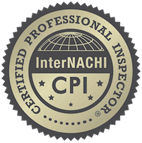
CODE OF ETHICS
At Guardian Angel Inspections, we are focused on providing a Home Inspection Service that is bound to a strict Code of Ethics, and standards of practice. What that means for you is, that we ensure that you will receive the “Highest Quality” service and high standard of professionalism and business ethics . We follow NACHI Nationally Accepted Code of Ethics, Nationally Accepted Standards of Practice, we do Not Perform Repairs on Any Home Inspected and Work Exclusively for the Customer.
All Rights Reserved.
This website is managed by Oamii.

